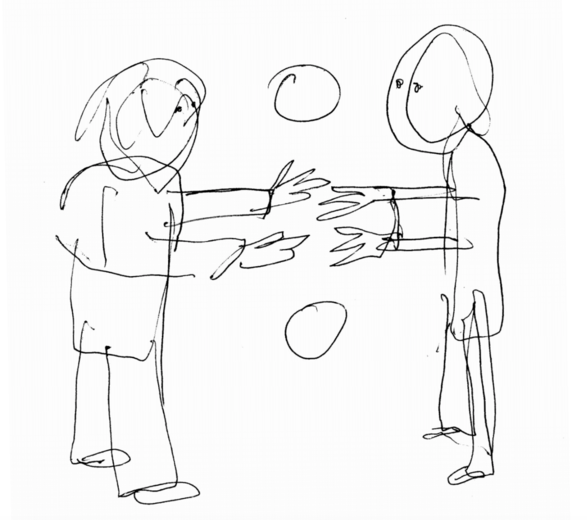FarBar: Omar Kholeif with Ghenwa Hayek and W.J.T. Mitchell

The Gray Center for Arts and Inquiry invites you to join us for a FarBar program with curator and writer Omar Kholeif centering on samples of new writing and thinking around his work in progress, Code-Switchers: The Art of Being Invisible. In this writing, Kholeif seeks to ask: What does it mean to exist in the interstices? Between the cracks of here, there, and everywhere? To live a life where you become completely invisible to everyone, including yourself, to the point that you cannot identify who you are? Developed as a memoir of both lyrical and prose essays, Code-Switchers: The Art of Being Invisible is an exploration of the very concept of code-switching, aiming to consider the reasons why we code-switch, how we do so, when is it successful, and when are you at risk of being called out?
UChicago faculty W.J.T. Mitchell and Ghenwa Hayek will be discussants.
Pre-register for the Zoom webinar here.
About the Speakers:
Dr. Omar Kholeif, CF FRSA, an Egyptian-born, British-American writer, curator, and cultural historian, is Director of Collections and Senior Curator at Sharjah Art Foundation. Trained as a political scientist, Kholeif's career began as a journalist and documentary filmmaker before entering into the picture palace of museums. Concerned with the intersections of queer, post-colonial, and critical race theory, Kholeif's research has explored histories of performance art; the experience of mental illness; the interstices of social justice, as well as the aesthetics of the digital. The curator of over 100 exhibitions of art, architecture, and digital culture; they are the author or editor of 31 books, which have been translated into 12 languages. They are currently at work on a number of publications including a monograph, Internet Art: The First Thirty Years (Phaidon, 2022); an anthology, Code-Switchers: The Art of Being Invisible (working title); The Myth of Being Arab: Brown Bodies in Art and Film (working title) and I Want My Brain Back (working title). He is also researching a monograph of the artist, Hugette Caland (b.1931; d.2019).
W.J.T. Mitchell is Gaylord Donnelley Distinguished Service Professor of art, literature, and cinema at the University of Chicago. He is primarily known as a founder of the field called “visual culture and iconology”, the study of images across the media. His many books include Picture Theory, Image Science, What Do Pictures Want? Seeing through Race, Iconology, and Cloning Terror: The War of Images, 9-11 to the Present. He served as editor-in-chief of the quarterly journal, Critical Inquiry, from 1978 to 2020.
Interim Director of the Gray Center, Ghenwa Hayek is a scholar of modern Arabic literature from the late nineteenth century to the present. Her work deals with the entangled relationships between literary and cultural production, space and place, and identity formation in the modern Arab Middle East, with a specific focus on Lebanon. Hayek makes use of the formal techniques of literary scholarship to nuance and complicate our understandings of the processes through which these dynamic cultures understand, represent, and position themselves in the world.
Her first book, Beirut, Imagining the City: Space and Place in Lebanese Literature, traces the modes of imagining the city of Beirut in Lebanese fiction from the late nineteenth century to the present, using an interdisciplinary engagement with literary and cultural studies, critical geography and studies of nationalism and identity. The book shows how anxieties about belonging to the Lebanese state have been articulated through metaphors of dislocation in Beirut, and argue that the shifting literary dynamics of space and place offer ways to frame and to interrogate notions of national identity and belonging.
About FarBar:
Conceived as a way to maintain the ethos of our regular Sidebar series for the pandemic moment, FarBar is a vehicle for artistic and scholarly dialogue with practitioners from around the world. Throughout 2020-2021, our planned conversations with artists in Puerto Rico, Haiti, South Africa, Vietnam, Lebanon, the Philippines, and Chicago will revolve around translation, indigeneity, ecological and economic collapse, logics of extraction, crisis, and memory and the archive. Being online for the year will also enable the Gray Center to reach audiences well beyond our Chicago geography, so please invite your far-flung friends.
Image: Zachary Cahill & Omar Kholeif, It's not me, it's you, it's me, or you , ink on paper w/ language, 2013- 2021. Courtesy.